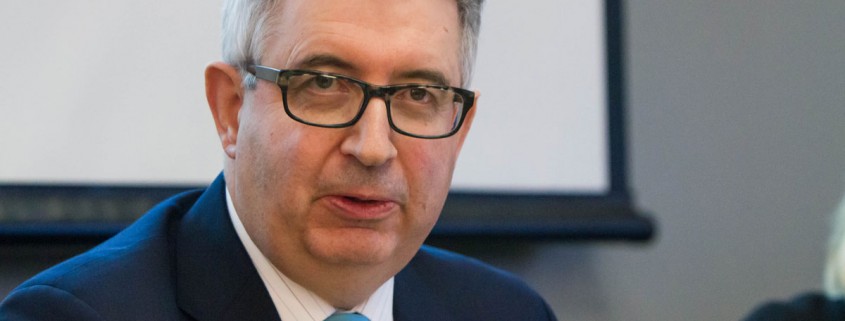Panel discusses legacy of Princess Diana’s advocacy
Celebrity advocacy was the topic of debate Wednesday when the USC Center on Public Diplomacy gathered former diplomats and professors together to discuss Diana, Princess of Wales, as a case study for advocacy not just on behalf of royals or states, but on behalf of individuals as well.
The panel consisted of Patrick Jephson, Princess Diana’s former Chief of Staff, Brett Bruen, former U.S. Diplomat and Director of Global Engagement at the White House and Bill Beaman, adjunct professor of Public Communications and a founding partner of OnPoint Strategies. The discussion was moderated by Mary Murphy, a journalist and senior lecturer in the Annenberg School for Communication and Journalism.
Diana, often known as “Princess Diana,” was known for her public appearances on behalf of the royal family and for her marriage to Charles, Prince of Wales, which ended in an unprecedented divorce in 1996. The princess died in a car crash in Paris in 1997.
Bruen started the discussion with a statement of purpose, saying the message that attendees should take away is finding your story.
“Define what it is you need [a] personal brand for,” Bruen said. “There ought to be a goal because that ought to inform everything else what you do.”
Jephson then took over the discussion by talking about his work with Diana and the principles that guided his actions to create Diana’s personal brand. He described her as a princess that could stand on her own despite a precedent that members of the Royal Family were “decorative.” He described Diana as not merely Britain’s princess, but “the world’s princess,” and as her chief of staff he made an effort to present Diana as such.
“She was authentic, she was genuine,” Jephson said. “The compassion you saw her give to a refugee, a leper, a victim of drug abuse, of domestic violence, somebody living with AIDS — all these people spoke a language that was international. It was the language of compassion and need.”
Beaman then described the need for authenticity in messaging and noted Diana’s own authenticity and “forgivability.” As Jephson put it, when among those who had lived a rough life, Diana saw herself as “one of them.”
Bringing up examples of “celebrity diplomats” like Angelina Jolie and Emma Watson, Murphy then asked the other panelists for their take on the role of celebrity personas to further diplomacy.
Bruen argued that celebrities tend to make poor advocates due to their lack of knowledge or effectiveness in their philanthropic efforts.
“If you want to generate the good will, the forgivability, you have to show impact. And so few celebrities are able to do that,” Bruen said. “Largely it is because their involvement is shaped not so much through the optic of ‘what do I want this initiative to achieve?’, but ‘what do I want to achieve?’”
Jephson noted the tendency for celebrities to engage in philanthropy only for publicity but also acknowledged that if done properly, celebrity philanthropy can lead to good. “If [Diana] felt rewarded” for [her philanthropic work] then she would do more of it,” he said.
When Jephson took his position working on Diana’s brand the princess gave him some words that would guide his work there: “Let’s go conquer the world with love.”

